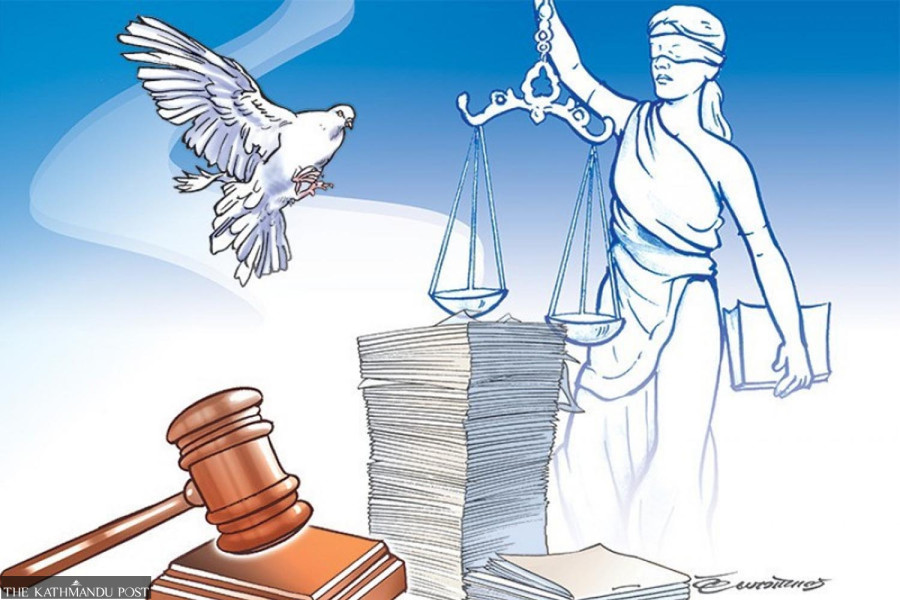National
Law amendment aims to drop conflict-era cases, human rights commission claims
High possibility of the draft aiming at withdrawing cases by giving them a political colour, says Top Bahadur Magar, commission chair.
Binod Ghimire
The government’s preparations to amend the Criminal Procedure Code is aimed at withdrawing the insurgency-era cases of atrocities, the National Human Rights Commission said on Wednesday.
The Pushpa Kamal Dahal-led government on May 10 registered a bill at the Parliament Secretariat to amend the code so as to clear the hurdles to withdrawing insurgency-era cases of “political nature”.
The draft legislation titled “a bill to amend some Nepal Acts’ has a provision that says cases sub judice in any court against anyone from a party or a group which conducted violent protests in the past but is carrying out its activities peacefully now, based on the constitution and the law can be withdrawn. In the bill, the government has added a sub-section to section 116 of the code, which ultimately aims at withdrawing the cases from all tiers of courts—Supreme, High and District—against political leaders.
“We are deeply concerned about the amendment bill. There is a high possibility that the amendment is targeted at withdrawing the conflict-era cases of human rights violations giving them a political colour,” said Top Bahadur Magar, the commission chairman, at a press meet.
He said the commission has already sought the government’s clarification on the matter though they are yet to get a response. The Truth and Reconciliation Commission has
received 63,718 complaints. Separately, 3,223 cases were lodged with the Enforced Disappearances Enquiry, Truth and Reconciliation Commission. However, the disappearance commission is conducting investigations into only 2,484 cases saying others do not fall under its jurisdiction.
There are also several cases under consideration in various courts against the CPN (Maoist Centre) leaders and the security personnel in connection with the crimes committed during the 10-year insurgency. As the two transitional justice commissions failed to make any headway towards providing justice, insurgency victims have started turning towards the regular justice system.
After refusal by local police to register complaints related to enforced disappearances, the Pokhara High Court, among other courts, have issued a ruling to the local police to accept complaints from victims. Officials at the commission say even these complaints could be withdrawn if the proposed amendment passes Parliament.
When the amendment was registered many saw it as an attempt by the government to give amnesty to Resham Lal Chaudhary, a former lawmaker convicted of masterminding the 2015 Tikapur killings which took the lives of seven policemen and a toddler. However, the Supreme Court, passing a final verdict in the case against Chaudhary, upheld the decision of the lower courts to sentence him for life.
“Seemingly, the amendment is aimed at withdrawing cases [like the one related to Chaudhary], but in essence it is for the war-era cases,” said Murari Kharel, acting secretary at the commission. After a failed attempt to amend the code through an ordinance to grant amnesty even in heinous crimes, the government registered the bill last week.
The commission also has said its serious concern has been drawn to the bribery scandal involving falsification of government documents to send Nepali nationals to the US as Bhutanese refugees. “This is not just the case of corruption but a serious crime of human trafficking and fraud,” said Magar. “We are closely watching the government's investigation.”




 13.12°C Kathmandu
13.12°C Kathmandu














